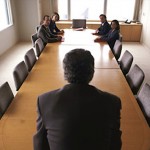 The notion of whether someone is how they are through nature or nurture is as old as time itself. It’s a topic that is especially pertinent in a social era where change is quite as pervasive as it is. In an environment where flexibility and adaptability are such important characteristics, the belief that talent is malleable is an important one.
The notion of whether someone is how they are through nature or nurture is as old as time itself. It’s a topic that is especially pertinent in a social era where change is quite as pervasive as it is. In an environment where flexibility and adaptability are such important characteristics, the belief that talent is malleable is an important one.
Indeed, this perceptual battle is one that I wrote about earlier this summer, where I explored the two mindsets that tend to underpin a belief in either natural talent that is fixed and unshapeable, or a more adaptive talent that can be improved and moulded with hard work. It’s probably quite easy to see how this latter mindset is more compatible with the ideals of being a social business.
A recent study takes a rather different tact, and suggests that leadership is very much something you either have, or you don’t. They suggest that a better understanding of how leadership emerges in an individual is crucial if any kind of leadership development is to be effective.
“It’s a three-legged stool: we call it being ready, willing, and able. Students first become ready to learn about being a leader; then they become willing to learn the skills necessary to practice leadership; and finally they’re able to lead because they have the skills and the motivation to do it. You can’t really move on to the other legs of the stool until you’ve achieved a certain amount of this readiness,” they suggest.
So, in other words, if the student doesn’t believe they can develop into a leader, then no amount of development will make any difference. It’s a theme I touched upon in a previous blog, which covered research suggesting that leaders who believe the abilities of their team is largely fixed, don’t then bother to invest in their development.
The research suggests therefore that the first step in any kind of leadership development is developing the mindset whereby each individual believes they can become a leader. They advocate a relatively simple self-assessment test that will give the individual an idea of where their strengths and weaknesses as a leader are, and they can then use this as a base to move on from with their development.
I reckon a lot of leaders think they're born to greatness, which is probably part of their problem!
As with anything, you have to be willing to learn to be able to learn. Leadership is no different.